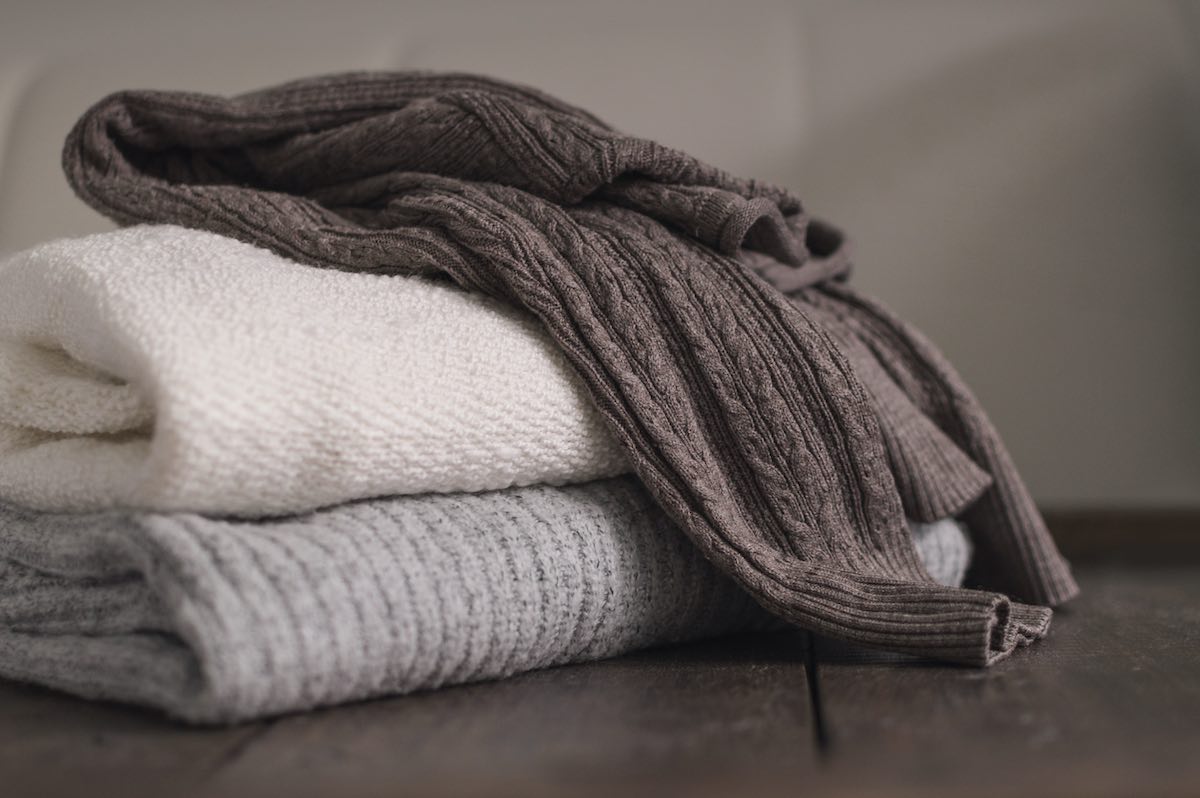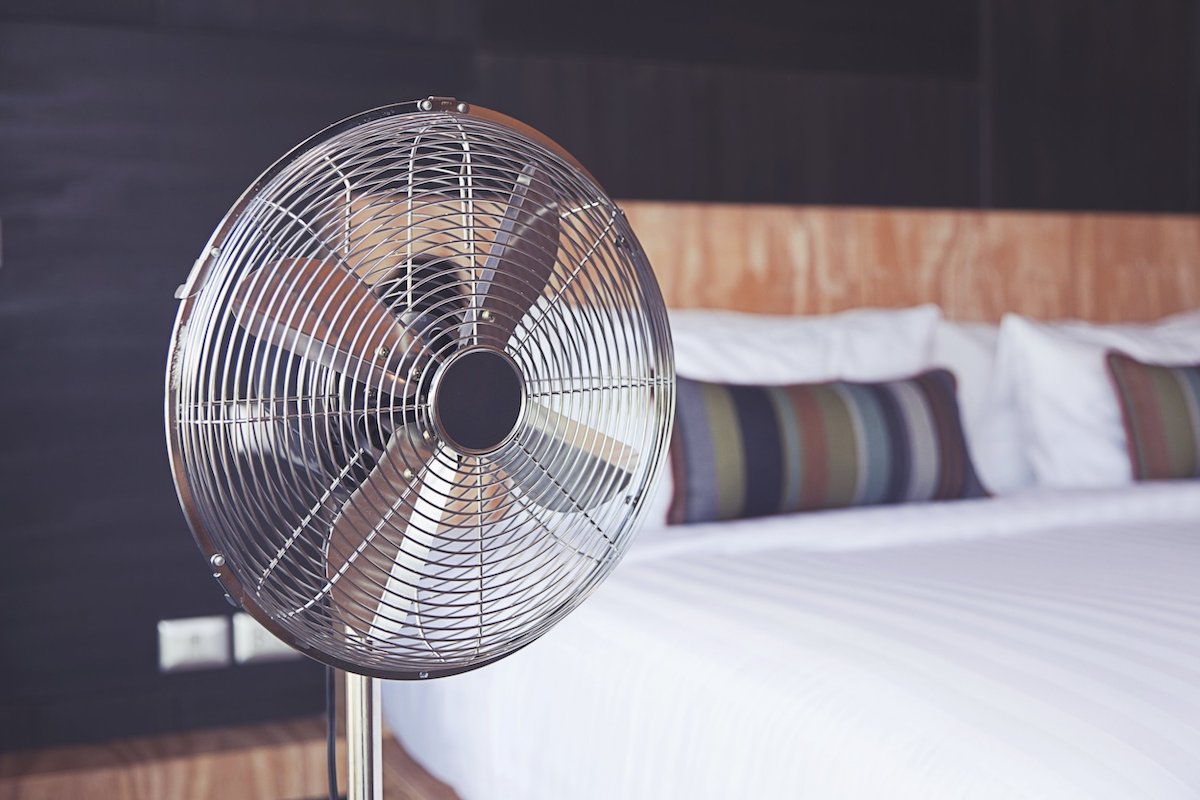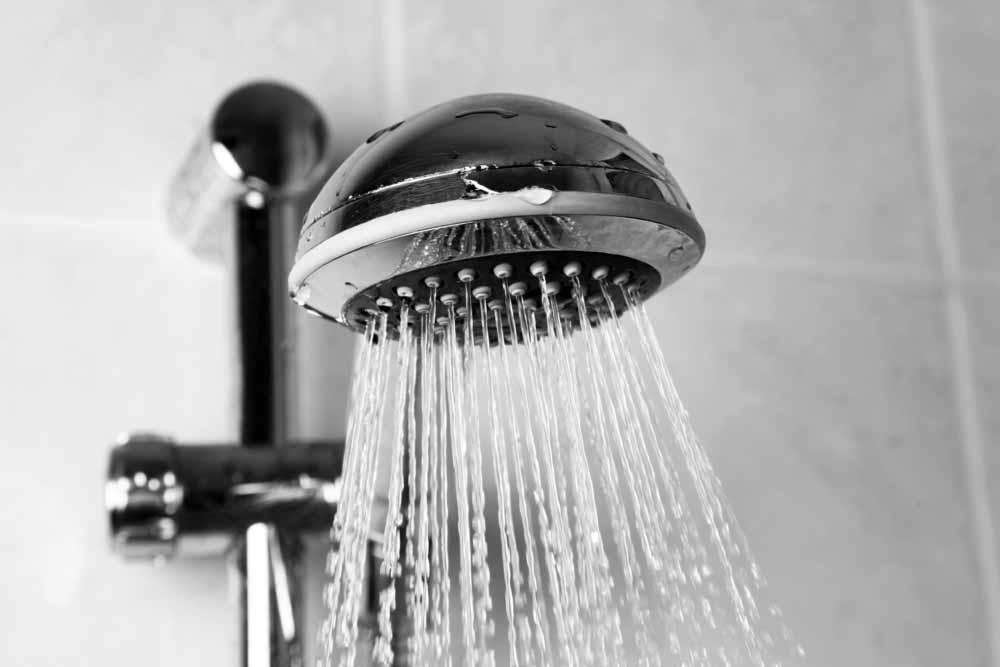You’ve just gotten the first electric bill for your new place—and, wow, is it ever higher than you expected. Expensive utility bills are an unpleasant surprise, but you don’t need to keep paying these fees indefinitely. Follow these 10 tips and tricks to make your house more energy-efficient and save on your utility bill, from budget blinds to box fans:
1. Insulate your home.
All that air you’re heating or cooling might be escaping right out of your house. Check all your windows and doors and seal up cracks using weatherstripping, heat-safe tape, and caulk. Inspect areas like attics, basements/crawl spaces, and the areas around utility pipes and add more insulation if necessary to plug up any leaks. If you’re not sure how to do it yourself, consider hiring a professional.
2. Leverage your lighting.
Heat coming through the windows can raise the temperature of your house, so consider installing faux wood blinds or blackout curtains to help block it out. Artificial light bulbs also emit a lot of heat and use a lot of energy, so swap them out for cooler, more efficient LED or compact fluorescent bulbs. You might also want to consider installing dimmer switches so you can adjust the amount of light and energy you use.
3. Dress based on the temperature.
Don’t put on sweats during the summer and then turn up the air conditioning. Dressing for the weather will help keep you cool in the summer and warm in the winter, so match your wardrobe to the temperature outside. During the winter, you can also layer up with sweaters, blankets, and other insulation that will help you conserve body temperature so you don’t have to blast the heat.
From our partners:
4. Optimize your thermostats.
If you’re leaving your house, turn the temperature up or down so the HVAC will run less often. It might also be worthwhile to consider installing a smart thermostat, which will learn your temperature patterns over time and automatically adjust the thermostat for you. Even if you’re not ready to make that investment quite yet, you can improve your HVAC’s performance by swapping out the filter every 30 days and getting it professionally maintained once a year.
5. Make your bed comfortable.
We spend approximately one-third of our lives asleep, so it makes sense to reduce energy use when you’re in bed instead of using the whole house. However, having a room that’s too cold or too hot can keep you from falling or staying asleep, so it’s important to strike the right balance. When it’s hot outside, put breathable cotton sheets on your bed and run a fan to cool off the bedroom. When it’s cold, layer up the bed with flannel sheets and blankets, and consider getting a heated blanket or mattress pad, which will use much less electricity than running the heat for the whole house.
6. Heat or cool smaller spaces.
If you tend to use only one room of your house at a time, it makes sense to heat or cool that space individually. If you have ceiling fans, running those in the summer will circulate air and make the room feel cooler with minimal electricity output. Box or tower fans can supplement or replace ceiling fans and further circulate the air. In the winter, space heaters will keep smaller spaces warm; just be sure to follow the manufacturer instructions for proper use to avoid overheating.
7. Trick out your water heater.
While most people focus on their HVAC unit, your water heater can also expend a not-insignificant amount of energy. If the owner’s manual says it’s okay, you might want to add an insulating cover to older units to keep heat from escaping. You can also double check your water pipes to see if they could use any additional insulation as well.
You might also be able to lower the temperature on your water heater without any adverse effects; usually only the dishwasher uses water on the hottest setting, so experiment with lowering the temperature to see if the dishes still get clean.
8. Low flow your water.
You can use less water without having to make cuts, thanks to low flow faucets and shower heads. You can pick up a faucet aerator or shower head at pretty much any hardware store, and they are very easy to screw in place. If it’s time to replace your toilet, you should also look into getting a low flow toilet that uses less water per flush. You’ll be benefiting the environment and your utility bill.
9. Be smart about using appliances.
You can reduce your appliance energy use in several ways. Dishwashers and washing machines use the same amount of energy no matter what, so you should only run full loads in order to maximize your energy usage. Wash your clothes on cold so you don’t have to heat up gallons and gallons of water. Consider air-drying your dishes and laundry to avoid using the heat dry setting. If that’s not possible for your clothes, use the timer on your dryer and put the heat on a low setting to reduce energy usage.
10. Watch out for phantom load.
Phantom load (also called vampire power, vampire draw, ghost load, and standby power) refers to the phenomenon of electrical appliances drawing power even when they are turned off. To reduce phantom load, unplug your devices when not in use. You can also connect them to a smart power strip, which will either turn them off automatically when not in use or let you switch off all appliances at once simply by hitting a button.
Small changes can add up to big savings when it comes to your electricity use. Follow these tips and tricks to reduce your utility bill and save money during peak usage times.
















